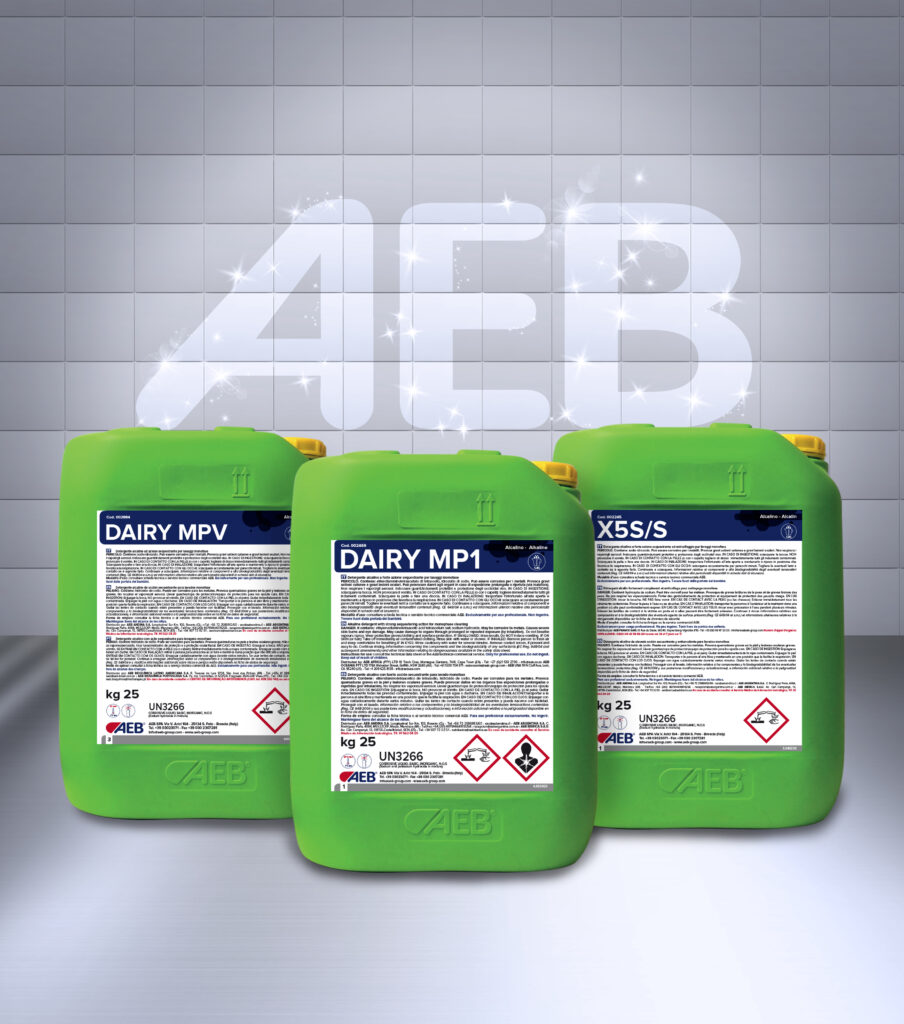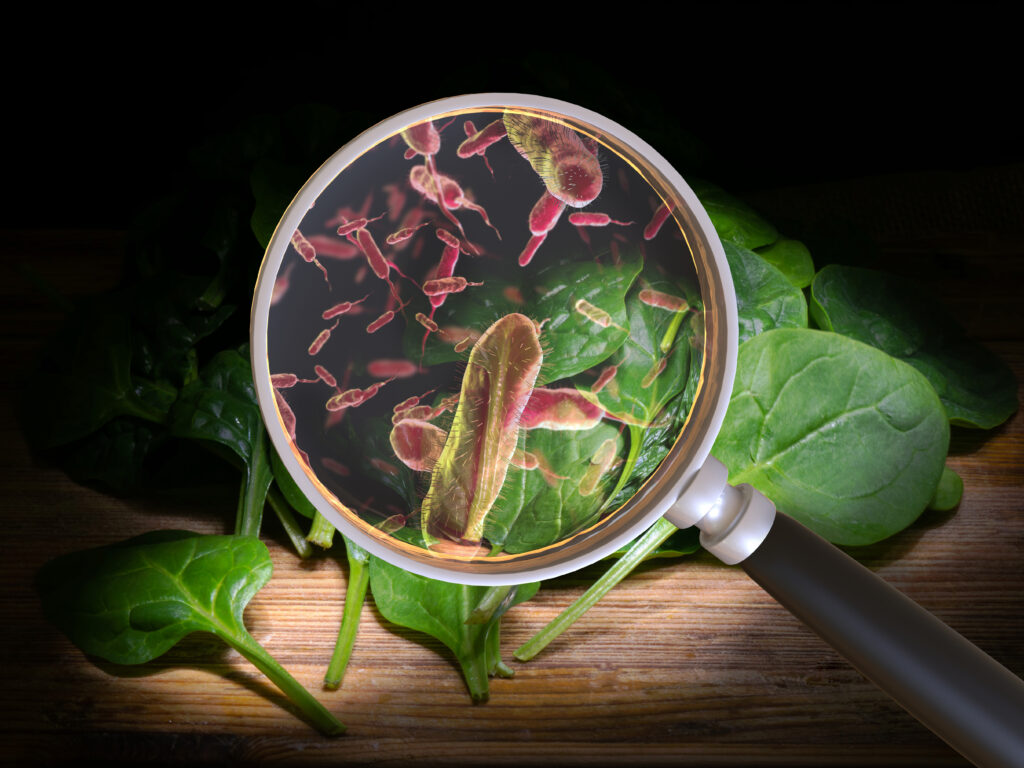
Preventing contamination of food surfaces by using specific cleaners and by following accurate sanitation procedures that can be easily adopted by any food and beverage producer.
Listeriosis is an infection caused by the bacterium Listeria monocytogenes, a microorganism with a natural habitat in soils, plants and water. If ingested in large quantities through contaminated food, this bacterium can give very serious consequences on humans, in particularly on pregnant women and their fetuses and immunocompromised persons.
The dangerous ingestions are not only linked with fresh food, as in the case of fourth range salads. Cooking and pasteurization at >65°C kill Listeria. However, there is often recontamination after heat treatment, before packaging. Moreover, differently from other microorganisms responsible for foodborne infections, Listeria tolerates high concentrations of salts and can multiply even at 2-4°C.
Because of the resistance of Listeria and its high mortality among immunocompromised people, national authorities have placed serious limits on its presence in foodstuffs. In particularly, for foods imported into the United States, there is no tolerance for positivity of this microorganism. Producers of batches found positive at customs must destroy the goods at their own expense and are placed on an export ban lists that can become perennial in case of recurrence.
 Problems … and solutions
Problems … and solutions
In order to avoid producing food contaminated by Listeria and in any case to limit its development (European Legislation allows for a certain number of them according to the type of food), GMP must be strictly applied in food industries. In particular with regards to the hygiene of raw materials, the surfaces in contact with food and the control of temperatures up to distribution centers.
Moreover, attention must be paid to process water, for example in the case of fourth range vegetables. Hence the absolute importance of surfaces’ hygiene with the complication given by the ability of Listeria to produce biofilms. Today most proposals to solve the problem of food contamination originating from biofilm are designed to prevent its maturation and the achievement of such dimensions that lead to a sort of explosion of the biofilm. But this model of biofilm development is now outdated as it is known that some microbial cells continuously leave the biofilm and end up contaminating food.
The prevention of microbial adhesion is therefore the most important safeguard against biofilm and its consequences. It is necessary to consider the substrate’s properties that promote adhesion: defects, irregularities, etc. of the surfaces; presence of organic molecules and ions on the surface. Besides maximizing the plant engineering’s care to avoid surface irregularities, dead zones for the flow of washing solutions, it is essential to focus on cleaning and disinfection procedures take into account several factors.
Microorganisms can only anchor themselves to surfaces if they have traces of organic matter and mineral deposits that allow anchoring and protection. Only adequately sequestered and surfactant-activated cleaning solutions prevent the deposits listed above and thus prevent the onset of biofilm formation. Washings performed with simple caustic solutions do not have the ability to remove inorganic residues from surfaces.
It is essential to prevent the contamination of food surfaces by specific cleaners and by following sanitation procedures that can be easily adopted by any food and beverage producer. AEB offer a wide range of solutions conceived to prevent the adhesion of microorganisms to the surfaces (first step of biofilm development). Dairy MPV, Dairy MP1, X5 S/S are caustic products for CIP applications rich in organic sequestering agents that chelate calcium avoiding the deposition of its salts as well avoiding the use by microorganisms of its cations to create anchor bridges on surfaces.
 Dairy MPV and Dairy MP1 are suitable for Dairy plants while X5 S/S is suitable for all the other CIP applications. Removil EPS is an enzymatic powder able to solve the polysaccharidic layer (EPS) that protect microorganism living inside a biofilm from the action of detergents and disinfectants. This product can also be adopted for diagnostic of biofilm presence on surfaces. AEB Technical Service is available to suggest the best procedures to implement to minimize any Listeria and biofilm caused contamination.
Dairy MPV and Dairy MP1 are suitable for Dairy plants while X5 S/S is suitable for all the other CIP applications. Removil EPS is an enzymatic powder able to solve the polysaccharidic layer (EPS) that protect microorganism living inside a biofilm from the action of detergents and disinfectants. This product can also be adopted for diagnostic of biofilm presence on surfaces. AEB Technical Service is available to suggest the best procedures to implement to minimize any Listeria and biofilm caused contamination.



